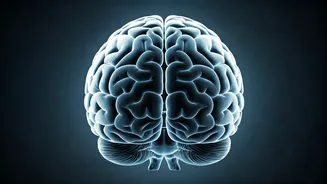Understanding Micro-Rests
The concept of micro-rests involves incorporating brief periods of rest and recovery throughout your day. These micro-rests, lasting only a couple of minutes,
are designed to allow your brain to reset and recharge, thus improving its function. During these mini-breaks, the brain can consolidate information, which is essential for memory retention and overall cognitive efficiency. This is especially helpful in environments characterized by continuous stimulation or demanding tasks. By taking micro-rests, you can effectively counteract mental fatigue and enhance your ability to focus, learn, and remember. Scientists have found these short intervals of respite to be critical for maintaining optimal mental health and reducing the negative impacts of prolonged cognitive effort.
Implementing the Technique
To put micro-rests into action, it's about introducing intentional pauses into your daily schedule. These pauses can take various forms, such as closing your eyes for a minute, taking a short walk, or simply gazing out the window. The crucial factor is to step away from the current task and give your mind a chance to wander or relax. One method is the 'Pomodoro Technique,' where you work in focused 25-minute intervals and take short breaks. During these breaks, engage in an activity that isn't mentally taxing, like stretching or listening to calming music. Regular micro-rests are very important; consider setting reminders throughout the day to ensure you don’t miss these mini-breaks. Regularity is more important than duration, hence, incorporating this practice should happen frequently.
Benefits and Outcomes
The advantages of practicing micro-rests are multiple and far-reaching. The primary benefit is the significant boost to your memory; by regularly resting your brain, it can consolidate memories more effectively, leading to improved recall and retention. Moreover, micro-rests significantly enhance focus and concentration, making it easier to stay engaged and efficient during work or study sessions. By reducing mental fatigue, these short breaks also contribute to overall mental well-being, lowering stress levels, and enhancing mood. The consistent practice of micro-rests has also shown increased productivity and efficiency. People who incorporate micro-rests often report a greater sense of clarity and mental resilience, which in turn benefits productivity and overall mental health.
Incorporating into Daily Life
Integrating micro-rests into your everyday schedule is very doable and requires just a little planning. Begin by identifying times in your day when you feel mentally exhausted or distracted. These are prime opportunities to integrate a micro-rest. You can try setting reminders on your phone or computer to prompt short breaks. Be mindful of how you spend your breaks; activities that provide physical or mental rest are most effective. This may mean stepping away from screens, going for a brief walk, or practicing some deep breathing. Start with small steps and be patient, as the benefits grow gradually. It's crucial to customize the practice to suit your lifestyle and preferences, and find what brings the best results. Over time, micro-rests can become a natural part of your routine, helping to boost memory and improve overall well-being.














